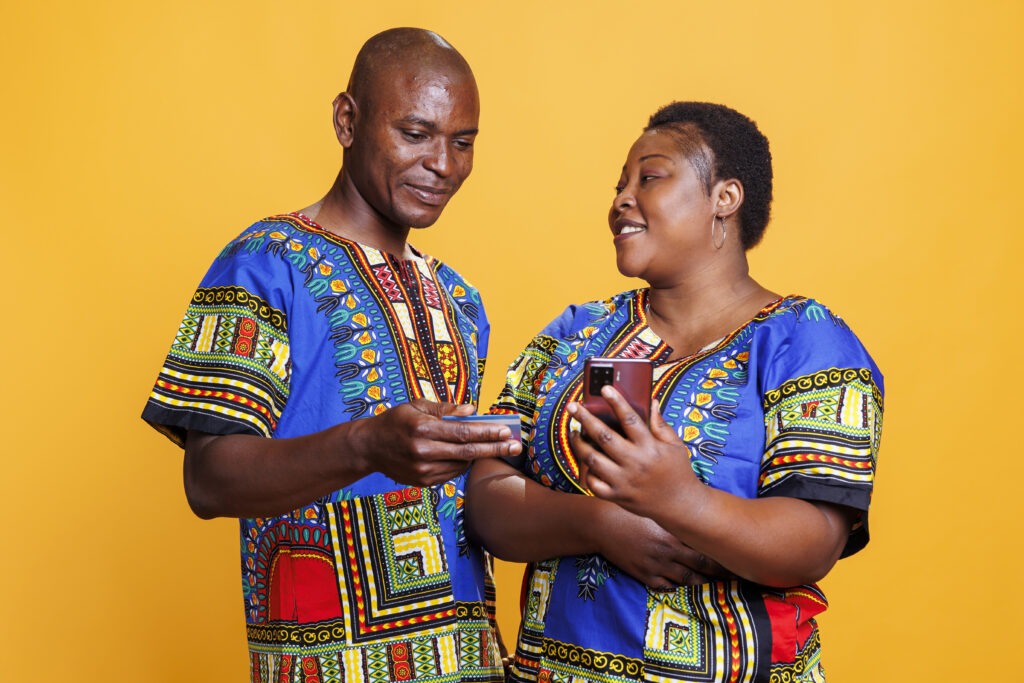Expanding your business across South Africa and Botswana means more than just going regional. It means going local. Speaking your audience’s language, especially between Xhosa and Tswana, builds trust, connection, and growth. This guide explores how accurate translation leads to real business success.
The Linguistic Landscape: Xhosa and Tswana in Southern Africa
Africa is one of the most linguistically and culturally diverse continents in the world, home to over 2,000 languages. This richness is reflected in countries like South Africa and Botswana, where multilingualism is part of daily life.
South Africa officially recognizes 12 languages, and it’s estimated that over 35 languages are actively spoken across its provinces. Botswana, while having English and Setswana as official languages, is also home to at least 26 spoken languages, including Kalanga, Shona, and Mbukushu, demonstrating its own complex and multinational population.
This diversity reflects a multicultural population shaped by movement, trade, and shared history across the region.
Where These Languages Are Spoken
Xhosa is spoken by about 8 million people, primarily in South Africa’s Eastern Cape, Western Cape, and parts of Gauteng. It belongs to the Nguni group of Bantu languages and holds official language status in South Africa.
Tswana, or Setswana, is one of the three Sotho languages and was the first Sotho language to be written. It is the national language of Botswana, where it is spoken by the majority of the population. Tswana is also recognized in South Africa and used in Namibia and Zimbabwe, making it one of the key languages for regional communication in southern Africa.
| Xhosa | Tswana (Setswana) | |
| Language Family | Niger-Congo → Bantu → Nguni | Niger-Congo → Bantu → Sotho-Tswana |
| Primary Regions | South Africa (Eastern Cape, Western Cape, Gauteng) | Botswana (official), South Africa, Namibia, Zimbabwe |
| Number of Speakers | ~8 million (South Africa) | ~5 million (South Africa), majority in Botswana |
| Official Language Status | Official in South Africa | Official in Botswana; recognized in South Africa |
Image reference: NOTE this image below can be used instead of the above table
Why Language Localization Matters
English may be one of the most widely used languages in South Africa and Botswana, but it’s far from the only one that matters. In fact, relying solely on English can limit your brand’s local relevance and emotional connection.
“If you talk to a man in a language he understands, that goes to his head. If you talk to him in his language, that goes to his heart.”
— Nelson Mandela
That mindset might carry you through surface-level brand awareness, but it won’t earn you trust or loyalty. True growth, especially at the regional level, requires going deeper. It means speaking directly to people in a language and tone that mirrors their own.
According to CSA Research, 76% of consumers prefer to purchase products with information in their native language, and 40% will not buy at all if the information is only in another language.
In Botswana, while English is the official business language, Setswana is the language of the people. The same holds true in South Africa, where most people speak one of the 11 official indigenous languages at home.
Beyond Borders: Why Neighboring Languages Still Need Localization
One of the most persistent (and damaging) misconceptions about doing business in South Africa is the idea that the region is linguistically or culturally monolithic. It’s not. Not even close.
South Africa is made up of distinct communities—each with its own language, dialect, cultural cues, tone preferences, and communication norms.
And it’s yet another misconception that neighboring or “related” languages can be easily interchanged. While Xhosa and Tswana may be spoken in neighboring regions or share similar Bantu roots, that doesn’t mean they’re interchangeable. Despite being geographically close, these languages are distinct in grammar, tone, and cultural context.
Assuming you can reach Tswana-speaking audiences with Xhosa content is like trying to sell in Spain using Portuguese. It might get you a polite smile, but not a conversation.
These communities aren’t just divided by geography; they have different idiomatic expressions, tone registers, cultural cues, and even purchasing behaviors influenced by local values. Treating them as one and the same risks alienating potential customers who crave recognition, relatability, and relevance from the brands they engage with.
A marketing slogan, for example, that resonates deeply with a Xhosa-speaking audience could fall flat or, worse, offend a Tswana-speaking one if translated too literally. This is where localization becomes a game changer.
Localization means adapting content not just by translating words, but by aligning tone, values, humor, and expectations with the target culture. For companies operating in multilingual regions, the ability to localize between Xhosa and Tswana opens up opportunities to:
- Communicate more authentically
- Build brand loyalty
- Avoid costly messaging missteps
The Business Case for Xhosa to Tswana Translation
Language isn’t just a communication tool. It’s a business strategy. Translating from Xhosa to Tswana can unlock access to broader audiences across borders—especially in Botswana, where Setswana is the national language.
Why Translate Xhosa to Tswana?
- Expanded Reach: Setswana is spoken in multiple countries, not just South Africa. It’s the majority language in Botswana, and also spoken in Namibia and Zimbabwe.
- Botswana’s Opportunity: Botswana’s economy is on a steady growth path, with forecasts predicting a 3.3% rise in GDP by 2025. With increasing purchasing power and digital adoption, it presents a ripe market for businesses ready to localize.
- Strategic Entry Point: If your brand is already reaching Xhosa-speaking audiences, translating to Tswana helps scale your presence regionally, meeting new consumers where they are.
In essence, when businesses translate from Xhosa to Tswana, they’re not just swapping words. They’re building bridges. This is equally true when it comes to Tswana to Xhosa translation, ensuring that communication is bidirectional and inclusive for both language communities. They’re building bridges. This approach strengthens customer loyalty, encourages word-of-mouth referrals, and improves conversion rates.
From Research to Results: Making Translation Work for Business Growth
When entering linguistically diverse regions like South Africa and Botswana, data-driven decisions matter. Studies show that over 70% of consumers are more likely to engage with brands that communicate in their native language.
Doing your own market research, such as surveying your audience or studying customer behavior by language, can help determine where translation services can have the most impact. Track engagement rates by language, measure conversion rates on localized pages, and gather feedback to improve both your translation service and customer satisfaction.
At AfroLingo, we take that insight and turn it into strategy. Our expert Xhosa to Tswana translation services go beyond grammar to help businesses communicate in culturally accurate and impactful ways.
We also specialize in transcreation, the process of recreating content to preserve tone, emotion, and intent in the target language. This ensures your message aligns with brand voice, resonates with local audiences, and respects cultural nuances.
“Translation is not a matter of words only: it is a matter of making intelligible a whole culture.”
— Anthony Burgess
Our clients benefit from:
- Accurate, culturally adapted messaging
- Transcreation of campaigns, slogans, and materials
- Localized apps, websites, and more
Localization isn’t a checkbox. It’s a long-term strategy to build trust, drive engagement, and remain compliant across markets. That’s why integrating Xhosa to Tswana translation into your multilingual strategy is not only smart; it’s essential for scaling regionally. Whether it’s customer-facing content or internal training materials, we help companies communicate with clarity and confidence.
Lost in Translation: Risks of Miscommunication and Tone Mismatch
Miscommunication can be more damaging than no communication at all. Without proper localization, even the most well-meaning message can be misunderstood or completely rejected.
“The single biggest problem in communication is the illusion that it has taken place.”
— George Bernard Shaw
Consider a situation where a phrase common in Xhosa marketing carries a different or even offensive connotation in Tswana. These kinds of missteps are common when companies rely on word-for-word translation without cultural context.
This is why businesses should never treat translation as a checkbox task. A basic translation service might cover grammar, but it often overlooks:
- Contextual tone
- Regional sensitivities
- Cultural implications
Inaccurate translation can:
- Undermine brand credibility
- Trigger backlash on social media
- Lead to regulatory misunderstandings
The key takeaway? Always localize with intention. Whether it’s Xhosa to Tswana or Tswana to Xhosa translation, effective communication builds trust, enhances clarity, and prevents costly cultural missteps. One missed nuance can cost your business credibility, so don’t underestimate the power of Xhosa to Tswana translation when communicating across borders.
Conclusion: Translation as a Business Growth Strategy
Language should never be an afterthought. For multinational companies in South Africa and Botswana, Xhosa to Tswana translation is more than a linguistic task. It’s a growth lever.
By investing in quality translation, transcreation, and localization, your brand can:
- Enter new markets with confidence
- Connect deeply with diverse communities
- Gain a competitive edge in a multilingual region
Whether you’re just beginning your journey into regional expansion or looking to deepen your local presence, start by speaking the language of your customers—not just clearly, but culturally.
Ready to expand your reach across South Africa and Botswana?
Partner with AfroLingo to get expert Xhosa to Tswana translation services tailored for your business success.
FAQs
What is Xhosa to Tswana translation services?
It refers to the process of translating content from Xhosa into Tswana in a culturally accurate and contextually relevant way. These services help businesses connect with Tswana-speaking audiences across South Africa and Botswana.
What are xhosa translation services?
Xhosa translation services involve converting text from or into the Xhosa language. These services are essential for companies targeting Xhosa-speaking communities with high-quality and respectful communication.
What are Tswana translation services?
Tswana translation services ensure that content is accurately adapted for Tswana speakers. This includes both written and spoken communication, helping businesses reach audiences in Botswana and parts of South Africa.
What is the Tswana language?
Tswana, also known as Setswana, is a Bantu language spoken primarily in Botswana and South Africa. It is one of South Africa’s 12 official languages and the national language of Botswana.
What are the top African languages?
Some of the most widely spoken African languages include Swahili, Hausa, Yoruba, Amharic, and Zulu. Xhosa and Tswana also rank among the top due to their prevalence in Southern Africa.


